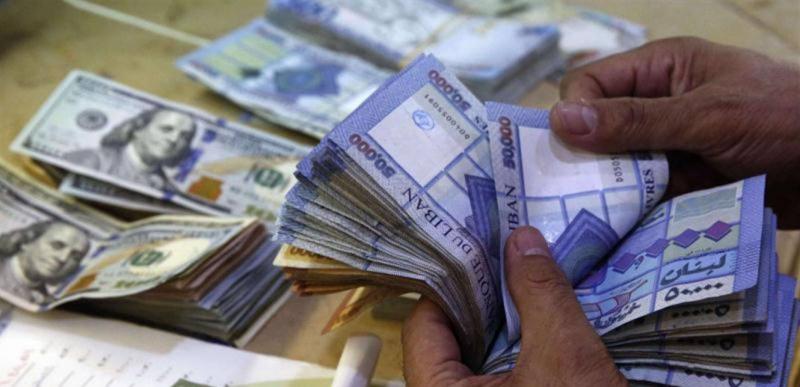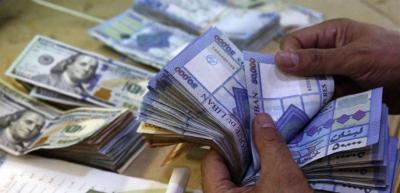The strict cash liquidity management policies implemented by the Lebanese central bank have shown notable resilience in resisting speculations against the national currency, despite the grim internal conditions and the escalating fears of military confrontations concentrated along the southern borders. These confrontations have led to significant losses in foreign currency inflows due to a severe contraction in tourism activities during the peak summer season.
In this critical phase, the monetary authority's efforts, according to concerned banking sources, focus on isolating the financial sector's communication lines with the outside world from any military or professional developments. This aims to prevent falling into harmful disruptions affecting cross-border money transfers, which could severely impact the import-export system and supply lines for essential goods and fuels.
According to information gathered within the financial sector, officials in the government and the central bank’s governorship are actively conveying the realistic situation to relevant stakeholders internally and externally, particularly emphasizing the need to consider and assess the country’s exceptional circumstances and their repercussions on economic decision-making. This is due to ongoing military developments nearing the end of nearly a full year or those primarily resulting from the explosion of currency and financial crises, the Beirut port disaster, and, consequently, the evident dysfunction in state management due to constitutional vacancies and paralysis of public administrations.
Concerns Over the Grey List
While the government undertakes politically and economically sovereign tasks, a banking official noted the sensitivity of the central monetary policy decision amid the potential expansion of war and the emergency measures it requires, alongside the necessity to continue efforts with international financial authorities to facilitate ongoing financial transactions through approved channels. This comes after confirming the local financial sector's efficiency and rigor in applying international standards to prevent any suspicious transactions.
It is no secret, according to the official, that there is rising concern among the central bank and the banking sector regarding the possibility of the Financial Action Task Force (FATF) and subsequently the regional group, potentially placing Lebanon on the grey list of countries that suffer from deficiencies in anti-money laundering and counter-terrorism financing systems. This could be justified by the claim that non-financial authorities have exhausted the time limits granted to the country without implementing necessary legal amendments and complementary operational and procedural measures to respond adequately from the financial sector.
Consequently, the acting governor, Wassim Mansouri, did not hesitate to state that they have succeeded in buying time, but they fear exhausting all deadlines without addressing some essential requirements that would relatively reassure regional and international bodies. It is worth noting that Lebanon previously went through this experience, prompting its authorities to establish a comprehensive system that led to the removal of its classification as a non-cooperating country in combating money laundering since 2002.
Mansouri's Measures
Following this, the Special Investigation Commission led by Mansouri continues to provide both international and regional bodies with documents and evidence related to addressing shortcomings, particularly regarding decisions to freeze accounts belonging to high-ranking officials, past and present, in civil and non-civil sectors. This effort aims to achieve specific timelines in collaboration with both legislative and executive authorities, in addition to the need to improve response procedures within the judiciary, courts, notaries, and other components of the judicial authority.
In this context, the Special Investigation Commission announced in its annual report that the number of suspected money laundering cases in Lebanon reached 527 cases last year, with about 80% stemming from local entities and around 20% from foreign entities. The commission investigated 495 cases while leaving 32 cases under review. Consequently, Lebanese judicial authorities ordered the lifting of banking secrecy on 96 cases, distributed between 81 cases of local origin and 15 cases of foreign origin.
Regarding the distribution of money laundering cases by original crime, drug-related trade constituted the largest share of money laundering suspicions with 89 cases, accounting for 21.5% of the total, followed by corruption with 49 cases at 11.84%, fraud with 48 cases representing 11.59%, and lastly, 39 cases falling under suspicions of terrorism or terrorism financing at a rate of 9.42%.
According to the geographical distribution of reports related to money laundering cases in Lebanon last year, most of them, about 95 reports or 57.2%, were concentrated in the capital, followed by Mount Lebanon with 29 reports, the North with 17, Bekaa with 9, and finally, the South with 7 reports, according to "Asharq Al-Awsat."




